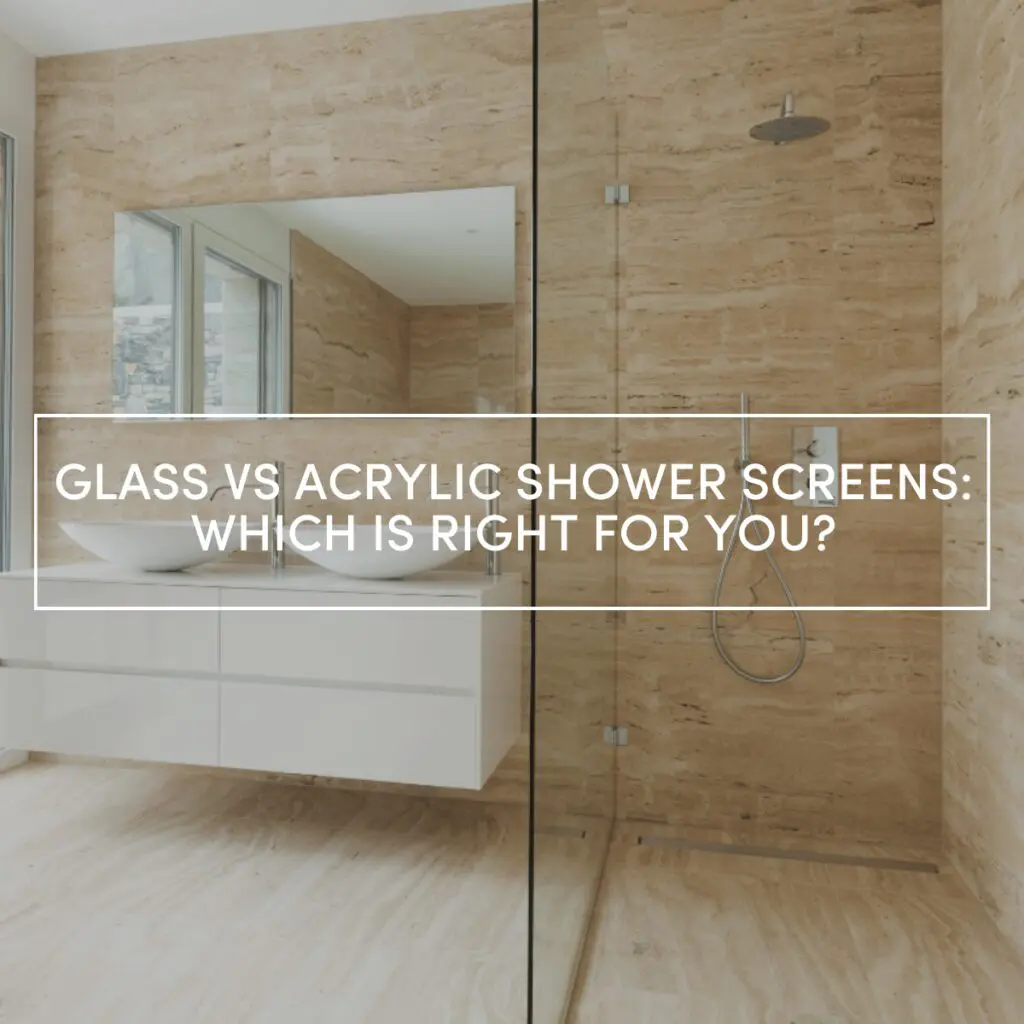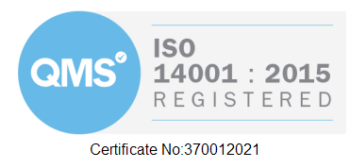Glass vs Acrylic Shower Screens: Which One is Right for You?

Small details matter when it comes to upgrading your bathroom, and choosing the right shower screen is a detail you want to get right.
If you’re going for a luxury look and feel, the wrong shower screen can instantly ruin the effect if you choose the wrong one.
Glass and acrylic are the two most popular shower screen materials, and have their own features and benefits.
In this article, we compare glass and acrylic shower screens so you can make an informed decision.
1. Durability and Strength
Glass Shower Screens:
Known for their robustness, glass shower screens are often made from toughened glass, which is highly resistant to impact, scratches, and cracks. Even if toughened glass breaks, it shatters into small, blunt pieces, reducing the risk of injury.
This is perfect in a bathroom where the chances of surfaces becoming slippery are higher, increasing the risk of someone falling.
Acrylic Shower Screens:
Though not as durable as glass, acrylic screens are shatter resistant. However, they are more susceptible to scratches and require careful handling to avoid damage.
2. Aesthetics
Glass Shower Screens:
With their sleek and modern appeal, glass shower screens impart a clean, transparent look that enhances the bathroom’s overall ambience. Their solid, clear appearance are perfect when you’re looking for a more luxury or premium look in a high-end style.
Acrylic Shower Screens:
Acrylic screens, while mostly clear, can have a slightly hazy appearance, which may not feel as premium or sturdy as glass screens. If you’re on a budget, an acrylic shower screen is a great option, but if you’re looking for something a little more impressive, it might not be the one you want.
3. Maintenance and Cleaning
Glass Shower Screens:
Cleaning glass screens is straightforward, using a microfibre cloth, glass cleaner, or soap and water. While they can show streaks and fingerprints, regular cleaning easily removes these marks. Also, if the glass shower screen is made from toughened glass, it means it’ll be less likely to scratch or mark, so you can be a bit more robust with cleaning.
Acrylic Shower Screens:
Cleaning acrylic screens is relatively easy but requires extra caution to prevent scratches. It is best to use a soft cloth and gentle cleaning products.
4. Installation and Customisation
Glass Shower Screens:
Glass screens offer a range of customisation options. You can choose from various finishes and patterns to fit in with your surrounding décor. If privacy is a consideration for your shower design, frosted glass provides some level of privacy while still retaining the benefits of a glass shower screen. Plus, glass shower screens can also be precisely cut to fit specific dimensions, and are available in frameless, semi-frameless, or framed designs.
Acrylic Shower Screens:
Though less versatile than glass, acrylic screens can be customised to fit different bathroom layouts. However, design choices may be more limited compared to glass screens.
5. Cost
Acrylic Shower Screens:
Acrylic screens are generally more affordable due to the lower cost of materials, making them a viable option for those on a tight budget.
Glass Shower Screens:
Glass screens tend to be pricier due to their higher quality, durability, and premium appearance. The cost can also vary based on size, thickness, and customisations.
Final Thoughts
Both glass and acrylic shower screens serve their purpose well. Your choice depends on personal preference, the look you aim to achieve, and your budget. If longevity and a luxurious appearance are your priorities, a glass screen might be the better option. For those with budget constraints, acrylic screens offer functionality and decent aesthetics.




